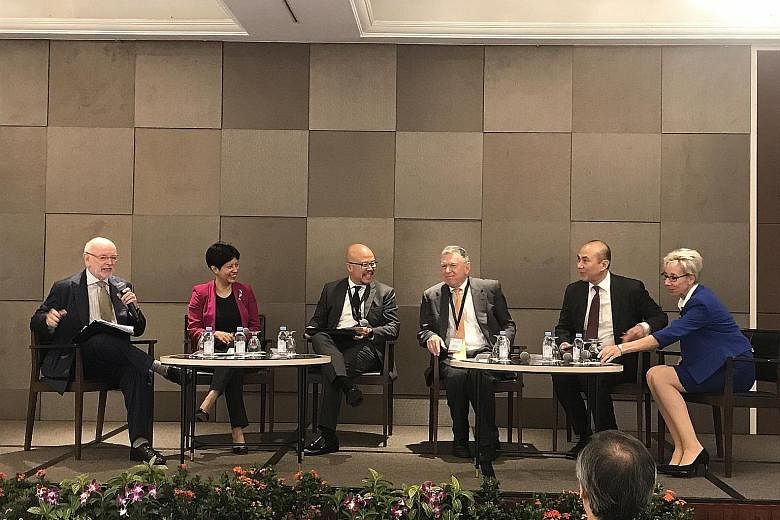For the sake of fair competition, the Singapore authorities aim to ensure traditional and digital businesses are taxed on a level playing field, Senior Minister of State for Law and Finance Indranee Rajah has said.
Singapore's tax system must keep up with digital disruptions, as companies will face more uncertainty in global business if different tax jurisdictions take different approaches to the digital economy, she added.
Her comments at a conferenceyesterday underscored the Republic's focus on crafting and sticking to international tax standards to promote a stable business environment.
"Digitalisation is now challenging conventional notions of taxation," she said, citing bricks-and-mortar retailers' push towards e-commerce.
"Jurisdictions across the world, including Singapore, are grappling with how to deal with taxation of digital economy and studying this closely. Some jurisdictions have taken steps to adjust their GST (goods and services tax) system to ensure a level playing field between their local businesses which are GST-registered and foreign-based ones which are not. We are studying how we can do likewise."
Ms Indranee said that tax neutrality would aim to establish "fair competition" between traditional and more heavily digitalised businesses, because "there should be fairness in terms of the taxes paid by businesses, regardless of their extent of digitalisation".
She emphasised that a level playing field for businesses across the world is a priority for the Republic.
"Having a consistent set of international tax standards, which is respected and abided by all jurisdictions, helps encourage greater cross-border trade and investments," Ms Indranee told the audience at the Singapore Management University and Tax Academy of Singapore's SMU-TA Centre for Excellence in Taxation conference. She noted Singapore's membership in the Organisation for Economic Cooperation and Development's Task Force on the Digital Economy, which is mulling over policy solutions to nascent digital tax issues.
PwC Singapore tax partner Paul Lau told The Straits Times: "Neutrality is one of the hallmarks of a good tax regime - this is to help ensure that business decisions are not dictated by tax outcomes... As such, it is sound policy to maintain tax neutrality between traditional and digital business models."
Meanwhile, Baker Tilly TFW tax partner Loh Eng Kiat said that with the increasing prominence of indirect taxes like GST in the digital economy, some countries already have rules that take aim squarely at e-commerce transactions. "Considering these trending developments, international consensus is likely to become a key driver that shapes future GST changes in Singapore," he said.
KPMG Singapore's head of tax, Mr Chiu Wu Hong, noted that Finance Minister Heng Swee Keat previously said Singapore will study how to tweak the tax system for GST-registered local businesses to compete fairly. "(Ms Indranee) has confirmed that this study is ongoing, and we are likely to see some tax policy changes on this front," he added.


